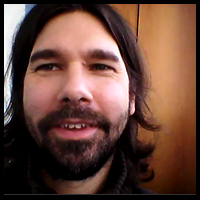Contribuții/Mesaje: 9
Limbă: English
harlandski (Arată profil) 26 octombrie 2015, 01:30:36
A concrete example: in a YouTube conment I wrote "enkontris" instead of "renkontis". Someone pointed this out and I said "Dankon por la korektado". Is there a better way of expressing this in Esperanto?
noelekim (Arată profil) 26 octombrie 2015, 02:13:54
harlandski (Arată profil) 26 octombrie 2015, 04:06:43
noelekim:*korekto* - Ago de tiu, kiu korektas, k la rezultanta skribaĵo: fari en la lingvo ĉiujn necesajn korektojnZ; mi nenion havas kontraŭ la korekto de kelkaj eraroj de la unua eldonoZ; pri la korektoj en la Universala VortaroZ; la plimulton de la faritaj korektoj mi plene akceptasZ. vortaro.net/#korektoThank you noelekim, both for the word I needed and for the link to a source of future answers. The examples given at vortaro.net help me to see that I have the right word, and as far as I can see they are absent from the Eo-Eo dictionary at lernu.net
sudanglo (Arată profil) 26 octombrie 2015, 11:09:51
A concrete example: in a YouTube conment I wrote "enkontris" instead of "renkontis". Someone pointed this out and I said "Dankon por la korektado". Is there a better way of expressing this in Esperanto?As it was just a typo, you could have said Dankon pro la atentigo - thanks for pointing this out.
harlandski (Arată profil) 26 octombrie 2015, 14:40:49
sudanglo:I think it probably was a genuine mistake - I was thinking "encounter" - but the phrase you suggest will certainly come in handy, thank you!A concrete example: in a YouTube conment I wrote "enkontris" instead of "renkontis". Someone pointed this out and I said "Dankon por la korektado". Is there a better way of expressing this in Esperanto?As it was just a typo, you could have said Dankon pro la atentigo - thanks for pointing this out.
Tempodivalse (Arată profil) 26 octombrie 2015, 17:26:09
1) -ado applied to verbal roots indicates duration of action. E.g., kur/ado means running over some period of time (vs kuro, which is "a run" or some limited amount of running)
2) -ado applied to substantival (noun) roots indicates some kind of activity related to the root, but does not iself suggest duration or lack thereof. E.g., martel/ado means the act of hammering (vs martelo, which just means "a hammer", the tool).
(Pace sudanglo's views on the nature of Esperanto's roots.)
In this case I would suggest Dankon pro la korekto, since korekt/ is actually a verbal root (not adjectival as many suppose), so it falls under 1).
Dankon pro la atentigo is good too.
RiotNrrd (Arată profil) 26 octombrie 2015, 20:10:02
Tempodivalse:Dankon pro l'atentigo is good too.Well... it would be if you got rid of the contraction.
Tempodivalse (Arată profil) 26 octombrie 2015, 21:25:12
RiotNrrd:My apologies, force of habit from studying too many Romance languages, where such elision is mandatory. The textbook form of course is la atentigo. Now corrected.Tempodivalse:Dankon pro l'atentigo is good too.Well... it would be if you got rid of the contraction.
(Though phonetically, how many people would truly enunciate both vowels fully? Say "pro la atentigo" a few times out loud, in a natural flowing voice. I can't do it without shortening the second A. Maybe it's too much Italian.)
Dominique (Arată profil) 27 octombrie 2015, 02:09:17
harlandski:[...] A concrete example: in a YouTube conment I wrote "enkontris" instead of "renkontis". Someone pointed this out and I said "Dankon por la korektado". Is there a better way of expressing this in Esperanto?I just added a rule to Lingvoilo (a grammar checker) so that the next version will detect errors such as enkontri → renkonti.
A Google search for "enkontris" suggested that it's a frequent mistake somehow, found even in an Esperanto course.





